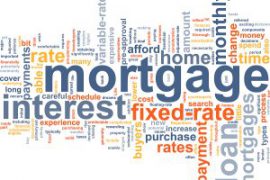Conveyancing can be a confusing topic when first getting your head around it. There are plenty of technical terms and legal processes to understand and it can be difficult to absorb all the information without direct answers to all your questions. This article aims to answer some of the most frequently asked questions about conveyancing to give you the best chance for understanding this complicated legal process. With the help of our article, there is plenty more you should understand about conveyancing.
What is conveyancing?
Conveyancing is the legal process of transferring ownership of a property. It is an important part of house-buying and selling processes in both commercial and domestic property. It involves several legal documents and searches in regards to the property and the buyers. Information will have to be gathered in relation to the property, such as the deeds and any building regulations. The conveyancer will also have to look up databases of all mortgages on the property to check that there are no charges or restrictions in place. This ensures when a property is purchased, anyone who has a legal interest in it can be identified.
What is a conveyancing solicitor?
A conveyancing solicitor is an expert in the legal process of conveyancing. They are responsible for ensuring all legal documentation and procedures are followed to complete a property sale or purchase. If you are purchasing, they will handle any searches; locate any title deeds needed for your new home; help with completing share certificates and Land Registry applications as well as liaise with those involved in the sale/purchase process
What is involved in the conveyancing process?
There are several stages to the process that will depend on your circumstances. Generally, you can expect the following
- Searching for deeds of the property
This can take some time depending on how easy it is to locate these documents. It is important to carry out these searches before exchanging contracts so any problems with properties legal status are caught early on and do not delay things further down the line.
- Contracts and Stamp Duty
Once you have found the deeds, your solicitor will draft up a contract for your property. You must agree on the standard terms of this contract as well as filling out any document that may possibly affect stamp duty on the purchase. If not, then it is your solicitor’s responsibility to ensure you are aware of any extra costs that may be incurred at this point. Once documents have been signed by all parties, the contract will be complete and each party must follow these terms as a legally binding agreement has been made.
- Surveys
You will be asked if you want a survey carried out on the property before the sale completes. This is a good idea as it can notice any structural or legal problems with the property that could affect its value. This will become an additional cost but it is an investment that should be thoroughly considered to protect the value of your future property.
- Transfer of ownership and completion
Once all conditions attached to the contract have been fulfilled, the seller will transfer over the deeds of property. The solicitor must then arrange for the contract to be fulfilled agreeing a completion date. This is when ownership of your new home is officially passed over and you can move in.
How long does conveyancing take?
The length of time taken for the conveyancing process will vary depending on whether you are buying or selling a property, as well as what type of property it is and the location. It will also depend on the speed and efficiency of your solicitor in completing their part in the process. If you are buying a property, be aware that several things can prolong this process such as:
- Taking too long to pay the deposit
- Failing to fulfil any of the conditions in the contract
- The seller deciding they want to pull out of the sale at any point.
How much does conveyancing cost?
Conveyancing costs can vary depending on circumstances, but most people can expect it to be around 1-2% of their purchase price (around £1000 is a good estimate). However, this does not include the cost of any searches and prices can vary between conveyancers.
How do I choose a conveyancing solicitor?
Look for a conveyancing firm that has extensive experience in your area and has an excellent reputation. Seeking recommendations from friends and family who may have used them before is also a good idea as they will be able to tell you their experience with the quality and speed of service.
You could also consider the services of online conveyancers. They tend to be far more efficient than their high street counterparts and offer incredibly competitive prices for impressive services. Make sure you do some research before deciding on one conveyancer to handle the transaction of your property.





